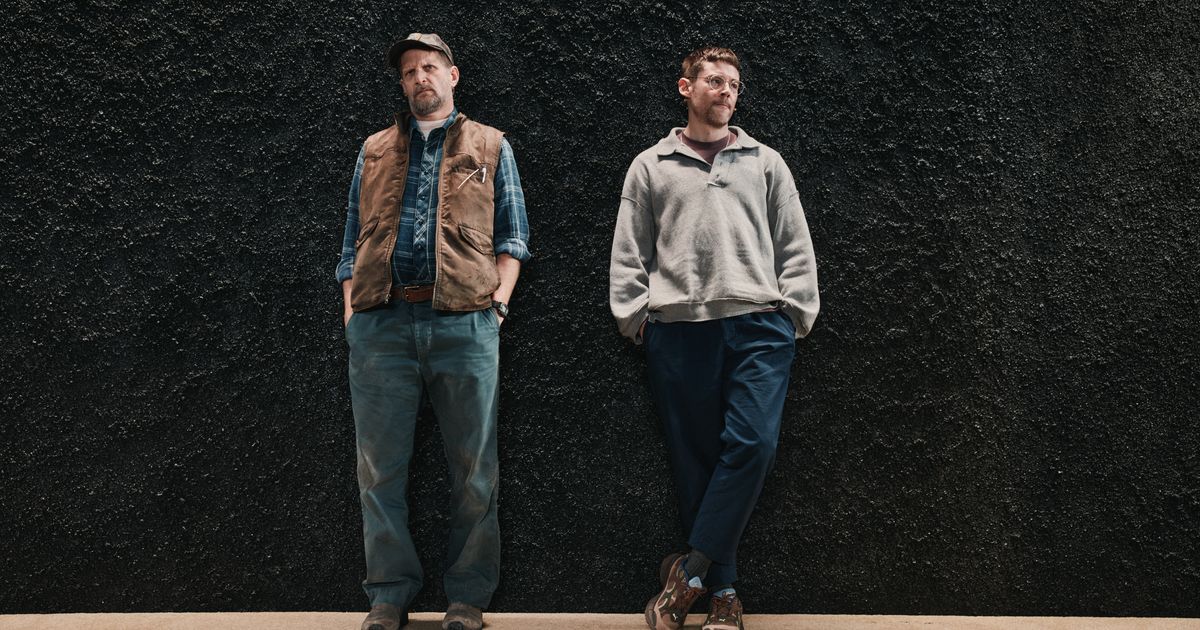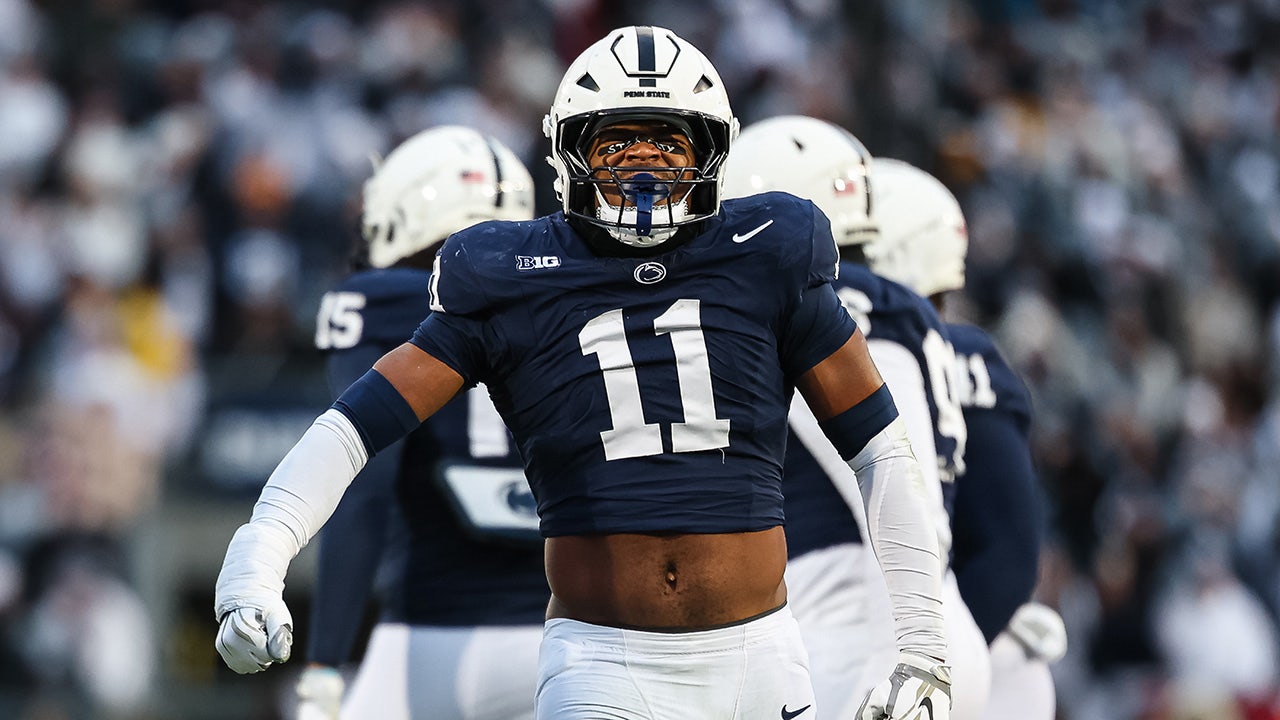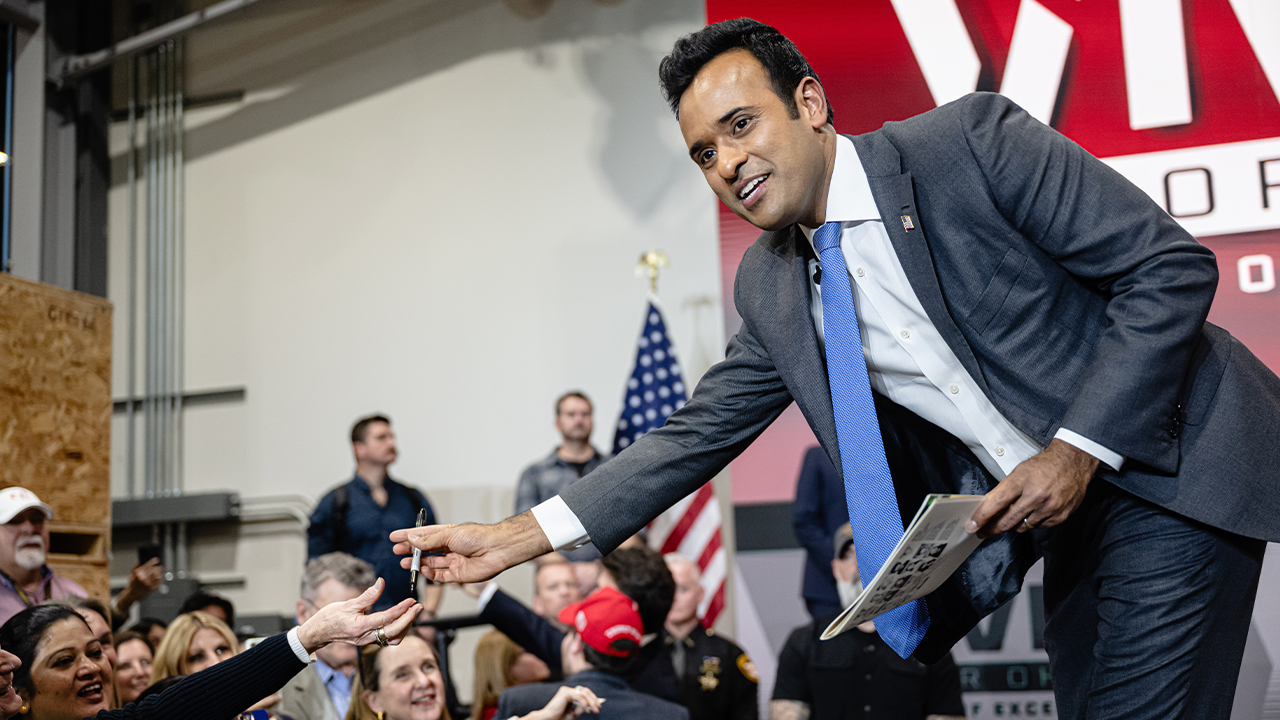From Samuel D. Hunter’s Grangeville, at Signature Theatre.
Photo: Emilio Madrid
In her 2019 review of Greater Clements, my predecessor Helen Shaw called its playwright, Samuel D. Hunter, “master of the midwestern miniature.” Hunter, who was raised in Moscow, Idaho, has produced a rich suite of plays offering precisely drawn and often quietly devastating pinhole views of his home state — its box stores and offices, roadside stands and two-star restaurants — and in his latest, Grangeville, he turns a critical eye on his own artist’s hand. Receiving its premiere at Signature Theatre under the direction of Jack Serio — a mentee of David Cromer, who, along with Davis McCallum, is one of a tiny handful of directors who have staged Hunter’s plays in New York — Grangeville tells the story of two estranged half-brothers brought up, of course, in the titular Idaho town. But the younger one now lives in Rotterdam, and he’s an artist of … midwestern miniatures. Or, he used to be: “I loved those little models you made, the ones of places from around here,” his older brother, Jerry (the excellent Paul Sparks), tells him during a video call. “Oh yeah, the Grangeville dioramas, they —” the artist, named Arnold (Brian J. Smith) answers hurriedly before pausing. “That was from a while ago. But yeah, people loved those. I mostly do painting now …”
Compact and affecting, Grangeville incorporates all the ingredients Hunter has been honing over the years: There’s the exploration of western American masculinity and male intimacy, the exercise of pushing two men slowly toward each other, through all their built-up layers of fear and anxiety, anger and sadness, inexpressible regret and resentment. There’s the sickening, hovering presence of money — Jerry and Arnold’s mother is dying, and the hospital bills are piling up, and she hasn’t even been paying the lease on the plot of land that houses the trailer where the brothers grew up. (“I think Monty’s been giving her a deal,” says Jerry with a shrug, causing an immediate freak-out in his expatriate brother: “Wait, he —? Jerry, you realize — if she was leasing, then she had a contract, he could go after us for back payments if he wanted to!”) There’s the terrible magnet of this little ordinary town, the people whose natural polarities keep them in it forever, and those who rip themselves away. There’s the stinging question of otherness, especially queerness, in such a town (Hunter realized he was gay around seventh grade and endured horribly “caring” interventions from both students and administrators at his private Christian school). But there’s also, more pointedly than in much of Hunter’s work, the question of art. Arnold, or Arnie, is married to a Dutch guy named Bram, and the couple have recently moved to Rotterdam, where Bram has gotten a good job with a museum’s education department. But Arnie is suffering — he misses Amsterdam, their old home; he’s tortured by the sudden reappearance in his life of his half-brother, who, reasonably, has reached out to talk about their mother, but who also, terrifyingly, really seems to want to reconnect; and worst of all, he’s not making art.
“You always spoke about making a diorama of your childhood home,” says Bram gently to Arnie as the pair, who’ve been taking some time apart, try to get through a dinner together. “That would have been fantastic. You should still do that!” One of the loveliest conceits in Hunter’s play is that he has the brothers fill in for the two (other) most important people in each one’s life. In a pair of back-to-back long scenes, Smith embodies Jerry’s wife, Stacey (they’re separated, and Jerry, who’s been crashing in his mother’s trailer, desperately wants his family back), and Sparks steps into the role of Bram. The transformations are subtle and wonderful. Smith crosses his arms and perches against a wall, channeling a woman with plenty of edge but by no means devoid of sympathy, and Sparks — who’s been leaning all the way into Jerry’s wide stance, his flannel-and-ballcap masculinity, his combination of twangy enthusiasm and deep, guarded insecurities — straightens up and quiets down. A soft Dutch accent brushes the edges of this voice and he looks Arnie straight in the eye, a lover who really sees his partner, especially when that partner doesn’t want to be seen.
Arnie’s soul is in enough of a tangle that he responds to everything with bite and bitterness, and his answer to Bram’s suggestion is no different. “Yeah, Mom’s trailer is a little — too close to home,” he snaps, then adds, with a sneer: “The sad thing is that diorama would probably bring in more money than anything I’ve made in the last ten years … You make little models of Dairy Queens and strip malls and rural highways, suddenly you’re critiquing late-stage American imperialism. I thought I was just showing people things from where I grew up … I was a fascination, this bumpkin from Idaho who didn’t go to any of the right schools … As long as I’m making dioramas of gas stations I’m fine, the moment I try something else they all remembered I didn’t go to the Sorbonne.” Bram, ever gentle, replies with the kind of finishing blow that can only be delivered with love: “Or maybe people just didn’t like your newer work?”
As Hunter continues to develop his perennial fascination with the invisible ropes that keep us tied to the mundane places that shaped us, even and perhaps especially when they’re also the places that hurt us, he’s also creating a kind of alternate universe avatar in Arnie. Charlie, the professor at the center of his play The Whale (and recently an Oscar-winning role for Brendan Fraser, who was originally slated to appear in Grangeville as Jerry), was another such grim thought experiment: “That’s kind of a fun-house-mirror version of me if a few key things in my life hadn’t happened,” Hunter told the New York Times in 2019. With Arnie, things have happened — “I got out of there despite you,” he screams at Jerry in a moment of terrible friction over the phone — and yet, and yet … I found myself thinking of a line from Hunter’s Lewiston/Clarkston, a deeply moving diptych of plays that had their New York premiere at Rattlestick Theater in 2018: “Seems like you’ve been self-actualizing your entire life,” says one of Hunter’s Idaho homebodies to a young traveler who’s blown in from out of town. “How’s that going for you?”
One of Hunter’s great gifts as a writer is the simultaneous expansiveness and precision of his compassion. He chronicles in unsparing yet infinitely empathetic detail the struggles of both a Jerry — a sincere, emotionally hard-working, bluntly likable man who was also a boy who mercilessly beat up his brother and called him a “little faggot” — and of an Arnold, the “smarter one,” the queer boy, the artist, the one who made it out of his hometown but perhaps never made it out of himself. In a beautiful late-breaking scenic shift in Serio’s production, the set by the design collective dots cracks open — having been little more than a dark, low-ceilinged box for most of the play, it finally reveals something else, something close to home. I won’t spoil the gesture, except to say that the altered space reverberates with both death and life, with both the reality that Jerry and Arnie experienced together and the artifice with which Arnie has tried to process that reality. It’s also the only moment in the show in which the brothers share literal space. All their communication has been eight time zones apart — phone calls and video chats choreographed with elegant minimalism by Serio, beginning with an extended conversation in one of his favorite mediums, the pitch-dark, where all we have to hold onto are voices. The stage of Grangeville is never flooded with light — Hunter’s characters never reach so complete a catharsis — but something does grow out of the darkness. Two men who began with an ocean between them now share a pool of light. It’s not nothing, and who knows how it may grow.
Grangeville is at Signature Theatre through March 23.













